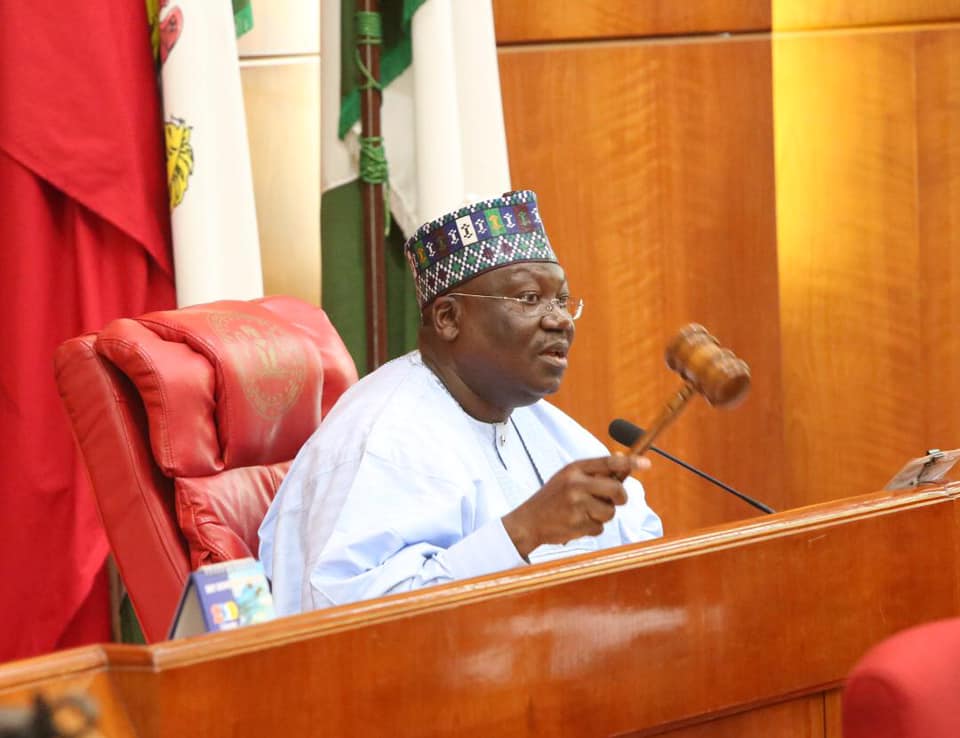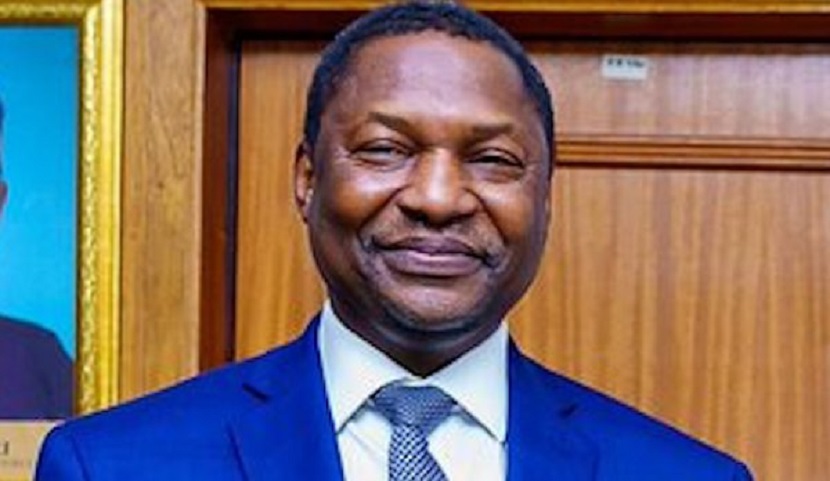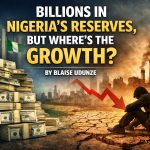General
Senate Proposes Death Penalty for Hate Speech Offenders

By Adedapo Adesanya
A bill to impose death penalty on hate speech offenders in Nigeria has passed the first reading at the Senate. The bill, tagged National Commission For the Prohibition of Hate Speeches, was sponsored by the Deputy Chief Whip of the Senate, Mr Abdullahi Aliu Sabi (APC, Niger State).
A part of the motion said a death penalty should be imposed on “any person found guilty of any form of hate speech that results in the death of another person.”
The upper chamber of the National Assembly had previously abandoned the bill last year, following public outcry. But the present ninth Senate has reintroduced the bill, reigniting furore as critics say it is against the fundamental human rights of every Nigerian.
At Tuesday’s session, the reintroduced bill, which was the 12th item on the Order Paper, was granted automatic first reading on the floor of the Senate when it was read by the sponsor.
The death penalty is the most severe punishment provided by the bill which defines hate speech as a comment that insults people for their religion, ethnic and linguistic affiliation, among others.
The bill stipulates: “Any person who commits an offence under this section shall be liable to life imprisonment and where the act causes any loss of life, the person shall be punished with death by hanging.”
On offences like harassment on the basis of ethnicity, racial contempt, the bill proposes not less than five-year jail term or a fine of not less than N10 million or both.
“A person who uses, publishes, presents, produces, plays, provides, distributes and /or directs the performance of, any material, written and/or visual which is threatening, abusive or insulting or involves the use of threatening, abusive or insulting words or behaviour commits an offence if such a person intends thereby to stir up ethnic hatred, or having regard to all the circumstances, ethnic hatred is likely to be stirred up against any person or person from such an ethnic group in Nigeria.”
According to the bill, “Conduct shall be regarded as having the effect specified in subsection (1)(a) or (b) of this Section if, having regard to all the circumstances, including in particular the perception of that other person, it should reasonably be considered as having that effect.
“A person who subjects another to harassment on the basis of ethnicity commits an offence and shall be liable on conviction to an imprisonment fora term not less than five years, or to a fine of not less than ten million naira, or to both.”
The bill, according to its sponsor, is aimed at ensuring the elimination of all forms of hate speeches; promoting the elimination of all forms of hate speeches against persons or ethnic groups; as well as advising the Federal Government on the matter.
Other circumstances which the bill condemns are when “a person subjects another to harassment on the basis of ethnicity for the purposes of this Section where, on ethnic grounds, he unjustifiably engages in a conduct which has the purpose or effect of violating that other person’s dignity; or creating an intimidating, degrading, hostile, humiliating or offensive environment for the person subjected to the harassment.”
The commission will be headed by an executive chairperson to be appointed by the President on the recommendation of the National Council of State, subject to the confirmation of at least two-thirds majority of the National Assembly.
Other functions of the commission include discouraging persons, institutions, political parties and associations from advocating or promoting discrimination or discriminatory practices through the use of hate speeches; promoting tolerance, understanding and acceptance of diversity in all aspects of national life and encouraging full participation by all ethnic communities in social, economic, cultural and political life of other communities.
It was also noted that there would be plans to supervise, coordinate, and promote educational and training programmes to create public awareness, support, and advancement of peace and harmony among ethnic communities and racial groups.
General
NGIC Pipeline Network to Experience 4-Day Gas Supply Shortage

By Modupe Gbadeyanka
The pipeline network of the NNPC Gas Infrastructure Company Limited (NGIC) will witness a temporary reduction in gas supply for four days.
This information was revealed by the Chief Corporate Communications Officer of the Nigerian National Petroleum Company (NNPC) Limited, Mr Andy Odeh, in a statement on Thursday night.
A key supplier of gas into the NGIC pipeline network is Seplat Energy Plc, a joint venture partner of the state-owned oil agency.
It was disclosed that the facility would undergo routine maintenance from Thursday. February 12 to Sunday, February 15, 2026.
The NNPC stated that, “This planned activity forms part of standard industry safety and asset integrity protocols designed to ensure the continued reliability, efficiency, and safe operation of critical gas infrastructure.”
“Periodic maintenance of this nature is essential to sustain optimal system performance, strengthen operational resilience, and minimise the risk of unplanned outages,” it added.
“During the four-day maintenance period, there will be a temporary reduction in gas supply into the NGIC pipeline network. As a result, some power generation companies reliant on this supply may experience reduced gas availability, which could modestly impact electricity generation levels within the timeframe.
“NNPC Ltd and Seplat Energy are working closely to ensure that the maintenance is executed safely and completed as scheduled. In parallel, NNPC Gas Marketing Limited (NGML) is engaging alternative gas suppliers to mitigate anticipated supply gaps and maintain stability across the network,” the statement further said.
“Upon completion of the maintenance exercise, full gas supply into the NGIC system is expected to resume promptly, enabling affected power generation companies to return to normal operations,” it concluded.
General
Judge Withdraws from EFCC Cases Against Former AGF Malami

By Adedapo Adesanya
Justice Obiora Egwuatu of the Federal High Court in Abuja has recused himself from the two cases involving the former Attorney General of the Federation, Mr Abubakar Malami, filed by the Economic and Financial Crimes Commission (EFCC).
Mr Egwuatu was recently reassigned the cases by the Chief Judge of the Federal High Court, and he disclosed that he withdrew for personal reasons and in the interest of justice.
The cases against Mr Malami were formerly before Justice Emeka Nwite of the same court, who was a vacation judge during the festive season.
Mr Egwuatu’s recusal comes after the civil suit for the forfeiture of 57 properties allegedly linked to Mr Malami was called for mention.
The former AGF, his wife, and son are facing a 16-count money laundering charge. They were granted bail on January 7 in the sum of N500 million with two sureties by Justice Emeka Nwite of the Federal High Court in Abuja.
Justice Nwite stated that the sureties must have landed property in Asokoro, Maitama, and Gwarinpa.
The judge added that the trio must submit their travel documents to the court.
The former Minister of Justice is facing a fresh persecution over the arms and ammunition found in his house by the Department of State Service (DSS). The arms were reportedly uncovered at his Kebbi country home by the operatives of the EFCC during a search.
The anti-graft agency handed the weapon to the secret police for a comprehensive probe, citing a lack of constitutional authority to investigate the possession.
Similarly, the former AGF was accused of knowingly abetting terrorism financing by refusing to prosecute terrorism financiers whose case files were brought to his office as the AGF in the last administration for prosecution. Alongside his son, the lawyer was accused by the DSS of engaging in conduct in preparation to commit an act of terrorism by having in their possession and without a licence, a Sturm Magnum 17-0101 firearm, 16 Redstar AAA 5’20 live rounds of Cartridges and 27 expended Redstar AAA 5’20 Cartridges.
General
NLNG Says Low-Risk Key to Unlocking Value in Nigeria’s Gas Industry

By Adedapo Adesanya
Nigeria LNG (NLNG) has reaffirmed that a well-structured, low-risk approach in Nigeria’s energy sector is essential to unlocking investments, accelerating economic development and strengthening energy security.
NLNG’s General Manager, Production, Mr Nnamdi Anowi, said this at a panel session titled De-Risking Investments in African Oil and Gas Projects during the Sub-Saharan Africa International Petroleum Exhibition and Conference (SAIPEC) in Lagos, noting that when oil and gas projects are perceived as too risky, investors tend to withdraw, leading to stalled projects, job losses, and missed revenue opportunities critical for national growth.
According to a statement by Mrs Anne-Marie Palmer-Ikuku, Manager, Corporate Communication and Public Affairs, he stated that reducing risks in oil and gas projects, beyond being a business strategy, was a matter of national importance for Nigeria’s economy, energy security, and long-term development.
He further explained that for NLNG, lowering risk means keeping gas flowing reliably, meeting long-term contracts, and ensuring the company remains a trusted supplier to global and domestic markets.
He said this will allow investors to fund projects at a lower cost, which ultimately benefits both companies and the country.
Mr Anowi also highlighted the importance of good infrastructure, local skills, and modern technology in reducing everyday operational risks.
He said that when pipelines, processing facilities, and digital systems work well, projects are safer, cheaper to run, and more reliable over time.
“If we reduce risk the right way and work together, investment will come; the next decade must focus on growing proven, bankable projects that deliver real value to the country, ” he further said.
In his closing remarks, Mr Anowi noted that Africa and Nigeria in particular are investable when risks are planned for and managed carefully, not ignored.
-

 Feature/OPED6 years ago
Feature/OPED6 years agoDavos was Different this year
-
Travel/Tourism10 years ago
Lagos Seals Western Lodge Hotel In Ikorodu
-

 Showbiz3 years ago
Showbiz3 years agoEstranged Lover Releases Videos of Empress Njamah Bathing
-

 Banking8 years ago
Banking8 years agoSort Codes of GTBank Branches in Nigeria
-

 Economy3 years ago
Economy3 years agoSubsidy Removal: CNG at N130 Per Litre Cheaper Than Petrol—IPMAN
-

 Banking3 years ago
Banking3 years agoSort Codes of UBA Branches in Nigeria
-

 Banking3 years ago
Banking3 years agoFirst Bank Announces Planned Downtime
-

 Sports3 years ago
Sports3 years agoHighest Paid Nigerian Footballer – How Much Do Nigerian Footballers Earn











